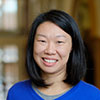I experienced many firsts attending this year’s NISO Plus conference; it was my first time attending the NISO Plus conference, it was my first virtual conference, it was my first global conference, and it was the first time I attended a conference as part of a cohort. NISO (the National Information Standards Organization) develops information industry standards by bringing together publishers, libraries, and anyone else involved in the information profession. The organization focuses on developing technical standards so it is probably more familiar to information professionals working in technical services and systems. This year’s conference theme was “Global Conversations: Global Connections” and NISO did its best to provide that. Almost 30 different countries from at least 5 continents were represented and sessions were scheduled from 9 am (EST) till 10:15 pm (EST). Breaks were scheduled between 3 pm to 7 pm and though the days were long, it was worth it to have colleagues from around the world attend. As a winner of one of the NISO Plus Scholarships, I was able to participate in sessions and meetings designated for past and other current scholarship winners. It was refreshing to see how many different people made up the scholarship cohort. Scholarship winners included international information professionals working at publishers, consortiums, archives, and libraries (public and academic).
Knowing that many conferences are trying to diversify their sessions, I expected to see a few sessions touching on EDI and the information profession. However, I was shocked to see the large number of EDI sessions offered. Nearly every block of sessions included at least one session about an overlooked or underrepresented group. Topics included international socioeconomic barriers to content, indigenous knowledge and contributions, and the lack of bibliodiversity. I found many of the presentations impactful but will highlight two. The presentation, Accessibility in the Scholarly Information Space, included Anna Lawson, a self-described blind person. I found her inclusion significant because many of the accessibility trainings and presentations I’ve attended typically don’t include a person who actually has the disability being discussed. Lawson gave first-hand knowledge of her difficulties with her PDFs not working with her screen reader. She also spoke of the practice of journals not numbering every page and how much havoc that created for her. The second session was about a topic that has frustrated many Electronic Resources Librarians for years. NISO has approved a working group to investigate unique package IDs. When enabling large journal packages in a knowledgebase like Alma, you are presented with multiple packages with a variety of names that loosely resemble what your library has purchased. None of them will likely match the package name on your invoice or your license. While it might seem easy to address, multiple parties will have to work together to agree to standards. The working group is at the beginning stages of tackling this issue but all involved parties are attempting to find a solution.
I enjoyed my first NISO Plus conference and look forward to continuing my work with NISO.

13 Comments on ‘Alice at NISO Plus 2022’
Interesting post, Alice! I was particularly interested in the presentation that offered real-life perspective on the challenges that people with visual impairment face in the information world. Thanks for introducing me to NISO!
Alice, thank you so much for this enlightening post! I’m so pleased to read of these efforts and to learn more about NISO!
Thank you for this informative post, Alice. I hadn’t thought of page numbers as a pathway or barrier to accessibility! And congrats on being a NISO scholarship winner!
Alice-First of all, congrats on your award! That is awesome! We all knew you were awesome, but now the NISO world knows too. This conference sounds like a great experience which discussed needed topics in many ways. Thanks for this report.
What a great experience, Alice. Congrats on your scholarship to participate! Glad to know there were so many EDI-focused sessions. Enjoy your continuing work with NISO!
Thank you for sharing about NISO, Alice, sounds like a really interesting conference!
Thanks for sharing — glad to see ZSR at NISO!!
Congrats on your award and thanks for sharing. Great to hear that important EDI-related topics are being discussed meaningfully at an international scale, and glad that info is getting back to ZSR!
Alice, thank you for your reportage.
It`s great that you were the beneficiary of the scholarship.
I found your commentary on EDI-related matters to be really informative.
I’m so glad to learn that the issue of the packages is being tackled — such a frustration!
This is the first time I’ve heard of a truly international virtual conference. How great that they flexed the time of sessions to allow for synchronous users from around the world. Congratulations on your scholarship and thank you for bringing this interesting perspective to ZSR!
Well done, Alice. Nice-o writeup!
Congratulations on the scholarship! It’s very inciteful about the difficulties of the visually impaired. I’m glad to hear that there is a working group tasked with standardizing journal package names.